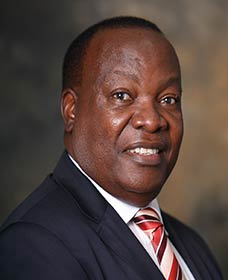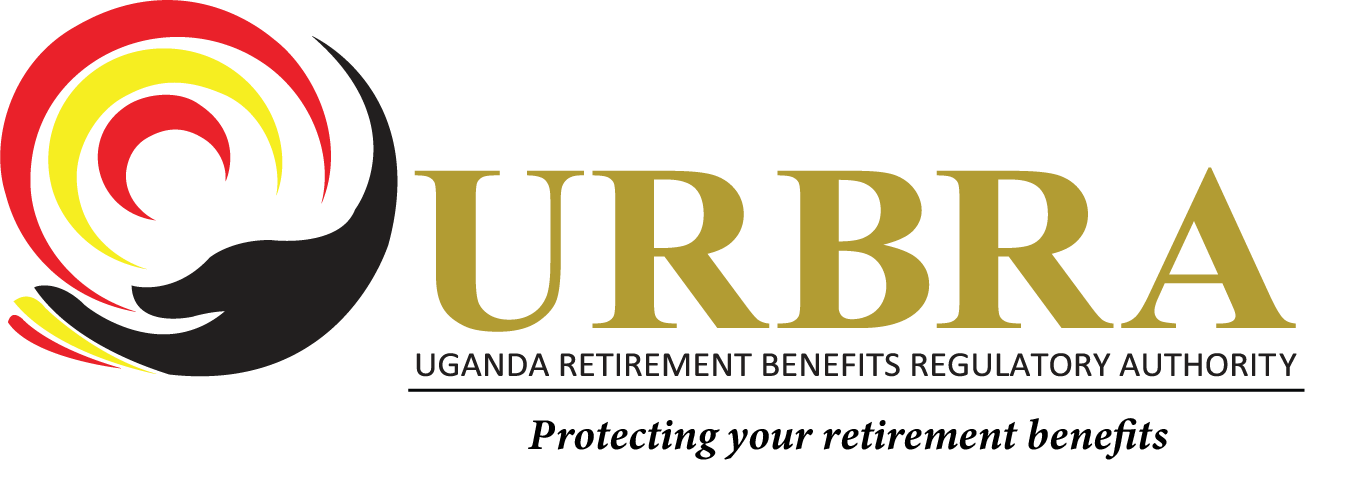Stakeholder engagement central to the establishment of URBRA

Andrew Derek Kasirye
URBRA Board Chairman
URBRA Board Chairperson, Andrew Kasirye looks back at the regulator’s teething and toddling experiences, and how the institution soldiered on
Then we started, we had nothing – no premises; no staff; no budget. We were appointed by Minister Maria Kiwanuka and all that we were given was the URBRA Act. As is commonly said, the rest is history. The URBRA Act was enacted in September 2011, we were appointed in October of the same year. According the law, we were required to licence all existing schemes, but we had no licencing rules, no regulations, no criteria, and no guidelines on how proceed. Thus, our first task was to have a framework under which we would licence all the schemes
before the deadline stipulated in the law. We brought different stakeholders together and started generating ideas for licencing and sector regulation. We consulted institutions like NSSF, Bank of Uganda, Trade Unions like NOTU. After an iterative process, an instrument was passed and we were able to licence the existing schemes. NSSF was the biggest scheme; there were others like URA and BOU, and as a matter of urgency they needed to be licenced. That was the first task – putting in place the licencing framework. Our next challenge was to set up an administrative structure.
We did extensive benchmarking in countries like Kenya, Namibia, Mexico to see how their regulatory bodies were structured. We developed an organogram and bounced it off our colleagues in Ministry of Public Service – whose Permanent Secretary was an ex-official member of the URBRA Board. With their input we came up with an organogram.
Up to that time, we had been working with a skeletal staff, comprising individuals mainly on secondment from other ministries. We had also brought in one or two other people on a needs-basis. After that, we had to find a way of formalizing the staff recruitment. We managed to get a five-year grant from the World Bank to help us start up.
We started off with an international recruitment process to source for a CEO. Under the grant we also had some technical assistance in form of expatriates. For example, we had an expatriate from Namibia to help set up the supervisory framework. The grant enabled us to recruit more staff, look around for premises, and embark on public engagement activities to mobilise sector stakeholders and encourage schemes to come forward and get licenced. We mainly used TV and radio programmes, as well as public dialogues. Schemes eventually started coming forward and to get licenses. Coming into a sector with players that had been largely unregulated, some players thought we were interfering with their autonomy.
We had to apply unique tactics to bring everyone around the table. The Board sought the legal opinion of the Attorney General to know who, among the existing schemes, fell within the ambit of the new law. There was also a challenge of streamlining the Boards of the existing schemes, because some were composed of members who did not meet the requisites of the fit and proper test. Naturally, this aroused tension, and some labeled the regulator an enemy of the people. Some even called upon the president to sack the CEO because they perceived him to be interfering with their operations. We also had the issue of trustees.
What would we do we do with the trustees of the existing schemes? Through stakeholder engagement we began to create more awareness. We invited public servants, private sector foundation and others. They were asking questions and trying to understand. They wanted to know why URBRA was coming at a time when most of them had already matured. We realized the challenge of involving the informal sector and we started that discussion too. At that time the working population of Uganda was about 10 million but less than
one million were covered under NSSF. So, we tried to conceive a plan on how to get into that market place. We needed service providers, trustees etc, but how would we speak that language to the informal sector? Then the Mazima scheme came along. The scheme had challenges along the way but URBRA remained supportive. The discussion on how to reach the informal sector has now become of interest to all sector players. Over the years, the sector has become more stable; there is greater awareness and appreciation of the relevance and significance of the regulator. We have successfully institutionalized the retirement benefits sector and we are now implementing our second five-year strategic plan. Despite the public awareness, we still have low coverage, with only 2.8million workers covered by retirement arrangements. There is still work to be done in order to get the 80% of the workforce enrolled.
URBRA has embarked on a process to develop a micropension scheme, which will provide a platform where every working person can save on a regular basis, according to their ability. We really need to come up with something that is all inclusive, easily accessible and flexible for the ordinary working Ugandan. We need to create confidence and trust. When people know that URBRA is there to protect their savings and that the buck stops with us, they will be encouraged to save. But we must also make people understand that retirement saving is for the long term.; Going forward, I think we need a lot of legislative reform.
We need to revive the liberalization bill. There is need for another entity because it is healthy for the financial sector and it will improve the efficiency of NSSF. There is a general lack of understanding of regulation both at political and social level. I would wish to see the advancement of the importance of regulation in this sector – and another sector.



